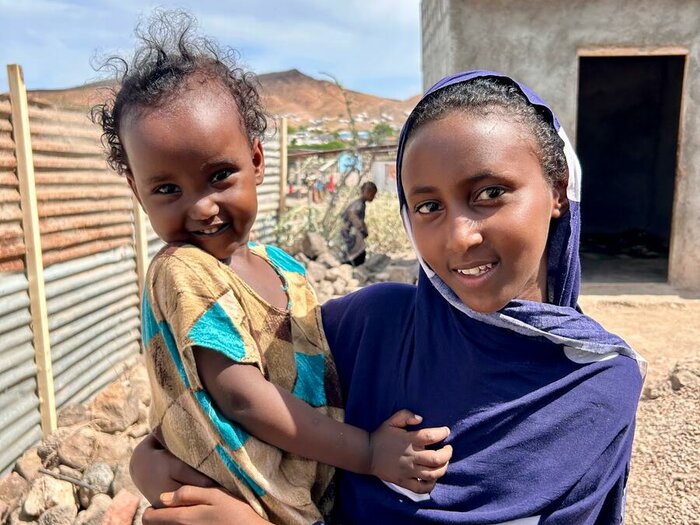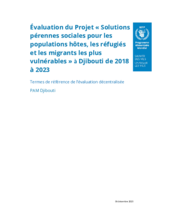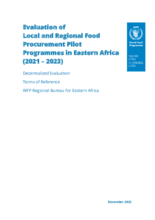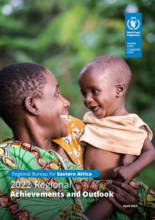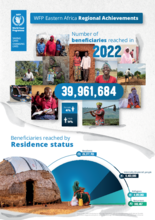Djibouti
- 42%
- of people live in poverty
- 90%
- of food commodities are imported
- 900,000
- population
Djibouti, in the Horn of Africa, has recently graduated to low-middle-income country status. Despite recent economic growth, poverty rates stand at 79 percent, with 42 percent of the population living in extreme poverty.
The climate is hot and dry, and desert-like, arid conditions are exacerbated by natural events such as El Niño phenomenon. Livestock represents the main livelihood for one third of the total population, but it accounts for only 3 percent of the country’s Gross Domestic Product (GDP).
As a result, Djibouti imports 90 percent of the food it needs, which makes it highly dependent on international market prices.
What the World Food Programme is doing in Djibouti
-
Nutrition
-
WFP works to prevent acute and chronic malnutrition and treat moderate acute malnutrition. WFP also provides food to people living with HIV (PLHIV) and those undergoing treatment for tuberculosis (TB) to promote good nutrition and health, and ease the side effects of medication.
-
Resilience building
-
In addition, WFP supports asset creation activities as part of building the resilience of affected communities. To meet the challenges of the scarcity of rural water and water and soil conservation, working with the Ministry of Agriculture WFP focuses on the mobilization of surface water, land management and capacity building, including strengthening community development.
-
School meals
-
WFP provides school meals combining internationally bought ingredients and locally sourced fresh food, in rural schools. Families receive take-home rations and nutritional education, as an incentive to keep their children in school. WFP partners with the Government of Djibouti and UNHCR to support vulnerable households, refugees, and asylum seekers. WFP is also supporting the Government in establishing a sustainable national school-feeding programme.
-
Assistance to refugees
-
WFP provides monthly in-kind or mixed cash-food assistance to registered refugees and asylum seekers in camps, most refugees have limited or no income, and therefore rely almost exclusively on food assistance. The most vulnerable are also helped via nutrition programmes such as the treatment of acute malnutrition and the prevention of chronic malnutrition. Refugee girls receive a take-home ration to encourage school enrolment and attendance.
-
Food security
-
WFP supports both rural and urban food-insecure families affected by drought, providing food and cash-based transfers. SCOPE cards allow people including refugees to securely receive e-vouchers to buy food at WFP-contracted retailers, or to receive a food basket.
-
Humanitarian logistics base
-
The Humanitarian Logistics Base is a pre-positioning point for assistance to Djibouti, Somalia, Yemen, South Sudan, Ethiopia and other countries. It has four silos and manages port and fleet operations, warehouses and bilateral service provision. The Humanitarian Logistics Base handled 1.5 million metric tons of food, contributing around US$60 million to the country’s economy, from 2020-2022.
Djibouti news releases
Go to pageFind out more about the state of food security in Djibouti
Visit the food security analysis pageOperations in Djibouti
Contacts
Office
P.A.M., Rue Ibrahim M. Sultant, Heron B.P. 10011 - Djibouti République de Djibouti,
Djibouti
Djibouti

